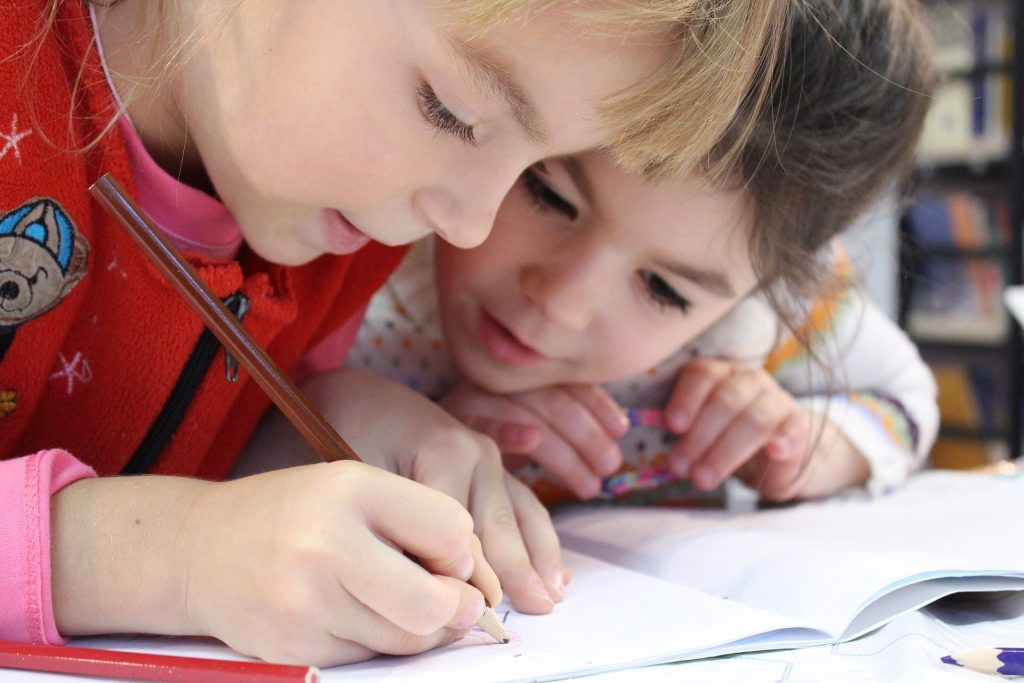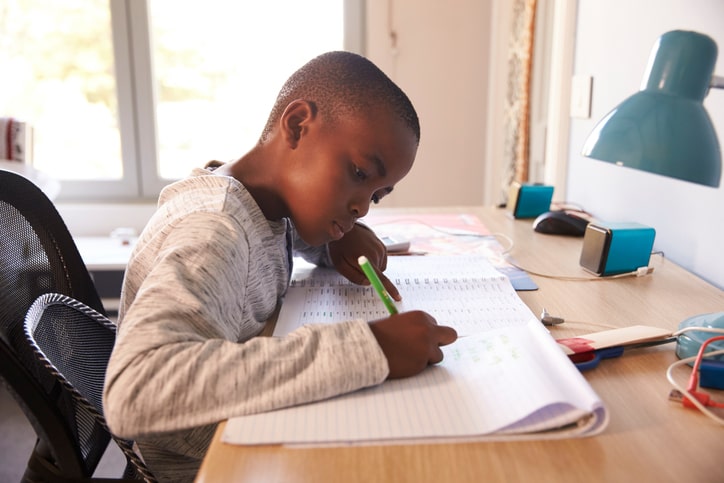In school and life, it is significant for a child to develop good study habits. This is because they enable children to learn better, manage their time well, and also reduce stress. It is true that if you establish these practices at an early stage in their lives then your kids will remain successful throughout their lives.
The article will give reasons as to why you need to help develop good study habits in children, and suggest ten easy ways through which this can be achieved by your children. Let’s get started with some tips on how you can make studying easier and fun for them!
Why You Need To Develop Good Study Habits In Kids?
It’s not only about raising marks and securing good grades at school but providing them with lifelong skills.

So, why is it important to develop good study habits?
1. Builds a Foundation for Learning
Good study habits are the building blocks of learning for life. With a routine approach to new subjects or skills, kids become prepared for any kind of challenge that might come their way while studying later on.
Creating disciplined study habits early means that every victory breeds confidence and more desire to learn.
2. Improves Academic Performance
Better academic performance is directly linked with the ability to develop good study habits. A systematic method of approaching studies makes it easy for children to understand what they learn hence enabling them to remember information easily leading to higher grades.
In addition, mastering time management skills enables learners to balance between other activities thus becoming more productive during study time.
3. Equips with Critical Life Skills
Study practices teach vital life skills beyond school success. Consistency in studying develops discipline as well as responsibility among others which are necessary qualities needed for personal growth and achievement in different spheres of life such as career or business enterprises.

Problem-solving abilities learned through taking charge of one’s own education also prove useful within academic settings and beyond them into real-world situations too.
4. Reduces Pressure and Worry
Feeling well-prepared for tests and assignments can greatly reduce stress and anxiety. If kids have a structured way of studying, they become more self-assured about the knowledge they possess and their ability to control situations. This preparedness does not just better their attitude towards school but also helps foster healthier relationships with learning.
5. Fosters Self-reliance
Good study habits promote independent learning among children. They get to learn how to be responsible for their own education by taking charge of setting goals as well as deciding what needs to be done in order for them achieve those goals.
This develops a sense of independence which is very important because it equips individuals with necessary skills required when dealing with various aspects of life.
Help your child develop good study habits and patterns that lead to a balanced lifestyle. Learning how to allocate time for rest or play alongside studying ensures that one takes into consideration all aspects needed for holistic living.
In addition, it shows kids the importance of stress management through such things as breaks so that both mental and physical wellness are maintained.
Read More: Is Homeschooling Better For Mental Health? 5 Strong Reasons
10 Helpful Study Tips For Children You Should Know
Helping develop good study habits in kids can set them up for academic success and instill lifelong learning skills.

Here are ten practical and helpful study tips for children that every parent and educator should know:
1. Establish a Designated Learning Facility
Creating a specific location for learning can enhance the focus and effectiveness of a child to be significant.
Choose an untroubled, illuminated space with fewer interruptions and ensure you have all necessary materials like pens, paper and computer if required. A consistent environment for study helps the brain understand that it’s time to concentrate and get work done.
2. Develop Consistent Study Hours
Consistency is key to develop good study habits in kids. Allocate time every day for studying and follow through with it strictly.
Consistency allows children to develop practice routines while making studies part of everyday life. It also helps them learn how to manage their time so that they can strike a balance between academic duties and other engagements.
3. Promote Short Rests
Periodic breaks are important because they help maintain focus as well as prevent burnout. Suggest that kids take 5-10 minute breaks every half hour or hour, so they can unwind a little bit and then come back to their lessons refreshed again.
Some activities such as stretching, walking around even for a few minutes, or doing something interesting within one’s interests may assist them in returning to their studies with fresh energy and determination.
4. Employ Affirmative Backing
Appreciating the effort made by children in their studies could encourage them to do the same always thereafter. It is among the crucial study tips for children.
Reward them for working hard regardless of whether it was much or not at all. As reward, you may give attractive words, a compliment, a sticker, or more playtime. Positive reinforcement improves self-esteem towards learning.
5. Teach Children How To Organize Their Study Materials
Develop good study habits in kids by teaching them how to organize their study materials.

You should equip them with items such as folders, diaries and scribbling pads.The ability to write down what needs to be done first is an extremely important aspect in developing their organizational skills.
Good organization behaviors relieve stress hence making study times more effective. This is among the study tips for children you need to take note of.
Read More: Why Is Parent Engagement In Schools Important? 10 Hacks For Busy Parents
6. Different Learning Styles Must be Incorporated
It is important to recognize that children have unique learning styles – some may learn best through visual aids, others through hands-on activities, and still others through listening.
Thus, their study routine should include various methods that cater to their individual preferences. For example, teachers can use colorful diagrams, educational videos or interactive activities to make learning engaging and effective.
7. Active Learning Should Be Encouraged
Active learning is an approach where students engage with the material that promotes critical thinking and comprehension simultaneously.
It calls for children to ask questions after reading materials summarize what they’ve learned and teach the same content to someone else. Discussing topics aloud, drawing mind maps or creating flashcards can enhance understanding and retention.
8. Large Tasks Should Be Broken Down
For kids, large projects or assignments may seem overwhelming at first sight. Therefore it is advisable to teach them how these tasks can be broken down into smaller manageable chunks.
When each part of the task has a mini-deadline it makes it less threatening for students as well as helps in terms of staying focused and motivated throughout this process.The latter also aims at equipping learners with crucial project management skills.
9. Create Goals That Can Be Tracked
Creating goals that are specific and attainable helps children maintain motivation as well as focus on their work. Evidence shows that those who set short-term academic goals along with long-term ones achieve better results than those who don’t do so.
They should keep a record of all accomplishments such as finishing books or mastering new concepts because doing this enhances self-confidence among children making them feel proud of themselves.
10. A Balanced Study Plan Needs To be Created
A balanced study plan includes not only academic work but also time for relaxation, physical activity, and hobbies.
Accordingly, parents must ensure that their kids find a balance between their studying schedule with other involvements for maintaining general health.Thus this will help prevent them from burning out and keep them motivated to study.
You can help your child develop good study habits that will enhance their academic performance and ensure they succeed in learning for the rest of their lives by integrating these learning tips into their daily schedule.
Inculcating positive attitudes towards education at an early stage equips them with necessary skills that can enable them to overcome future problems.
Read More: Preschool Separation Anxiety: 5 Empowering Strategies Every Parent Must Know!
A Word From Mind Family
At Mind Family, we believe that helping to develop good study habits in kids is not just about enhancing their academic performance; it’s about setting them up for a lifetime of success and well-being.
Remember, it’s never too early to start instilling these study tips for children. Every small step you take to support your child’s education and personal growth contributes to a brighter, more successful future for them.
Thank you for joining us on this journey to nurture the next generation of thinkers, leaders, and problem-solvers.
Frequently Asked Questions (FAQs)
1. Why are good study habits important for children?
Good study habits improve academic performance, reduce stress, and equip children with essential life skills for future success.
2. How can parents help children build a strong foundation for learning?
Parents can create a routine study schedule and a dedicated learning space, fostering consistency and focus.
3. What are some effective ways to improve a child’s academic performance?
Encourage active learning, use positive reinforcement, and teach organizational skills to help children understand and retain information better.


















Leave a Reply